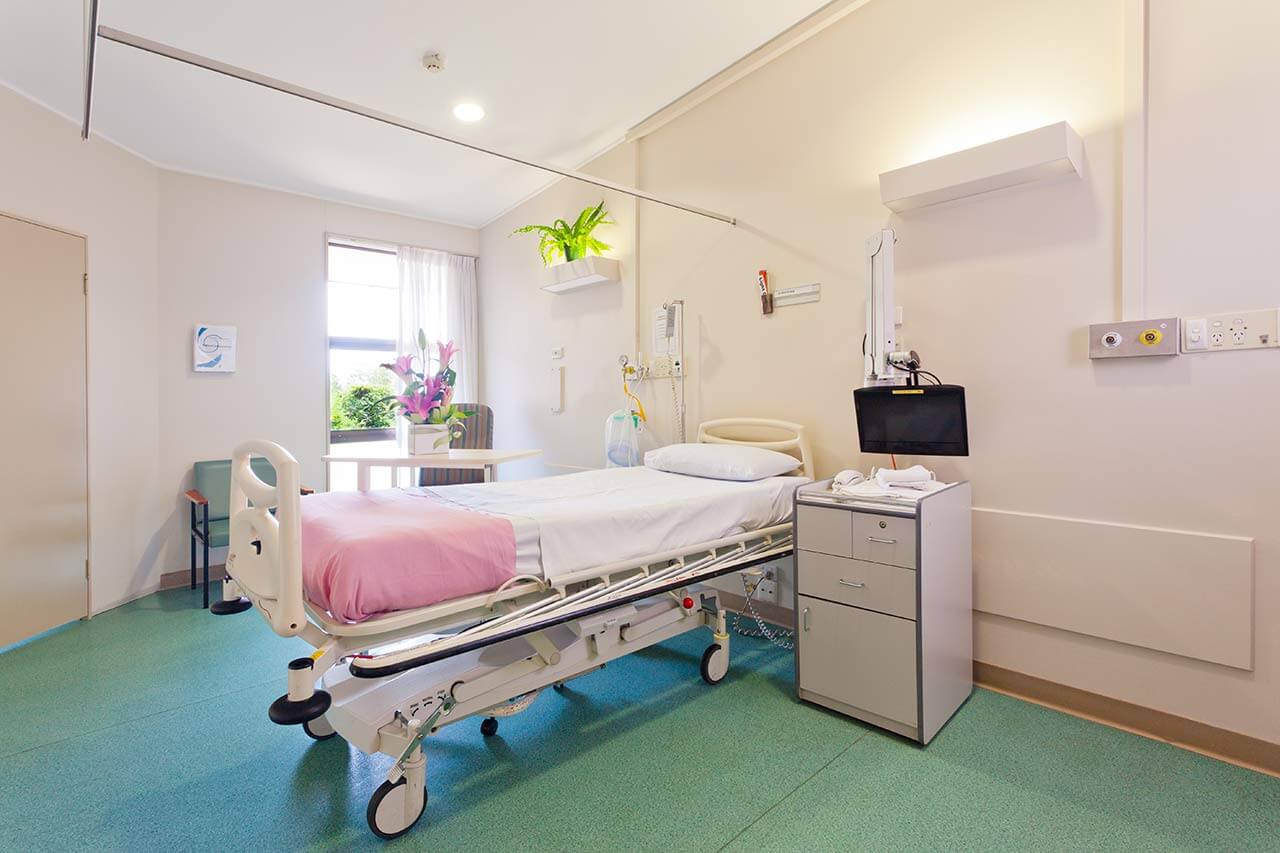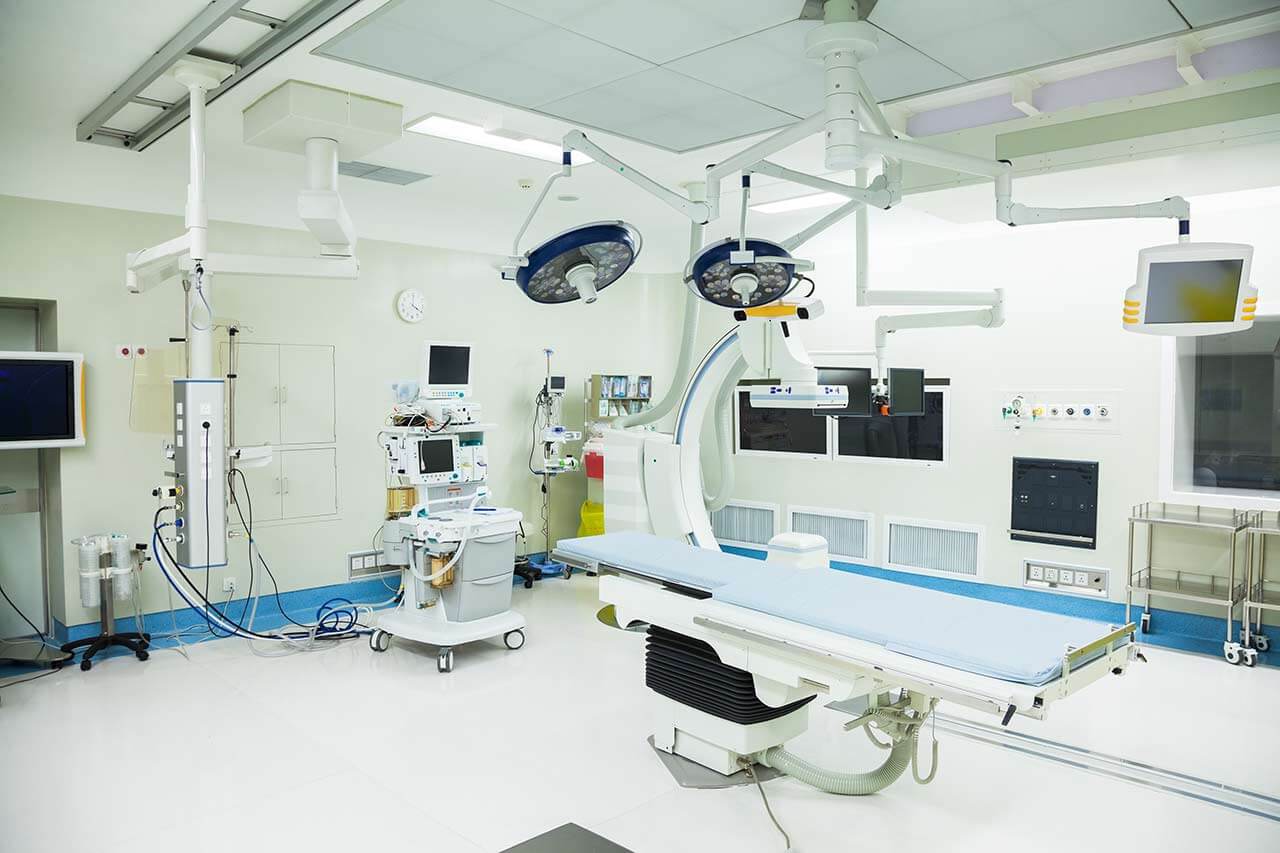
The program includes:
- Initial presentation in the clinic
- clinical history taking
- review of medical records
- physical examination
- laboratory tests:
- complete blood count
- general urine analysis
- biochemical analysis of blood
- inflammation markers (CRP, ESR)
- blood coagulation analysis (aPTT, PT, INR)
- hormone test (estradiol, progesterone, prolactin, DHEA-s, FSH, LH)
- gynecological examination.
- ultrasound examination: pelvis, abdomen, thyroid gland, breasts
- nursing services
- consultation of related specialists
- treatment by chief physician and all leading experts
- explanation of individual treatment plan
Required documents
- Medical records
Service
You may also book:
 BookingHealth Price from:
BookingHealth Price from:
About the department
The Department of Endocrinology, Diabetology, Angiology and Obesity Treatment at the Hospital Bogenhausen Munich provides top-class diagnostic and therapeutic services for patients with endocrine disorders, metabolic disorders and vascular diseases. The department specializes in the treatment of type 1 and type 2 diabetes mellitus, while its outstanding success in this area is confirmed by the certification of the German Diabetes Society. In addition, the department's specialists provide medical care to obese patients. Such patients undergo comprehensive diagnostics for the detection of the causes of excess weight, after which endocrinologists, physiotherapists, nutritionists and psychotherapists cooperatively elaborate a tailored weight loss program lasting about a year. The department's medical team treats more than 3,000 inpatients and outpatients. Thus, the doctors of the medical facility have vast experience and the required professional skills to provide effective treatment even in especially complex clinical cases. The treatment in the department combines modern medical care and a humane attitude towards the patients. The specialists devote enough time to personal communication with their patients and try to support them on their way to recovery. The department is headed by Prof. Dr. med. Robert Ritzel.
In the field of endocrinology, the department's medical team carries out comprehensive diagnostics and treatment of thyroid, adrenal and pituitary diseases. The key focus is on the treatment of hypothyroidism, hyperthyroidism, Hashimoto's thyroiditis, nodular goiter, thyroid cancer, adrenal insufficiency, adrenogenital syndrome, Cushing's disease, pituitary insufficiency, etc. The accurate diagnostics plays a decisive role in the treatment success, and therefore the department has modern laboratories for endocrine function tests, hormone tests, etc. In addition, the department has advanced ultrasound equipment, including systems for Doppler and duplex sonography. Whenever required, imaging tests (X-ray, CT and MRI) can be performed as well. With the diagnostic results, endocrinologists select the most effective drug therapy regimen for the correction of hormonal levels and elimination of endocrine dysfunction.
An important area of the department's clinical practice is the treatment of type 1 and 2 diabetes mellitus, as well as the treatment of diabetic foot syndrome. Since diabetes mellitus is an incurable disease, the first step towards its compensation is diet adjustment and quitting bad habits. In addition, in order to live with diabetes mellitus, the patient needs to thoroughly know the specifics of this pathology, the associated risks and possible complications. The department's patients undergo special training, during which they receive comprehensive information about the disease, its treatment methods, lifestyle modifications and other important aspects. The main treatment method for diabetes mellitus is insulin therapy and the intake of tableted antihyperglycemic drugs. The patients with diabetes mellitus can undergo both inpatient and outpatient medical care (the patients with severe pathology must be hospitalized).
The department's medical team is also proud of its successful experience in the treatment of diseases of the arteries, veins and lymphatic vessels. Angiologists cooperate closely with radiologists, vascular surgeons and neurologists. The complex clinical cases are discussed at interdisciplinary boards, during which doctors cooperatively decide on the optimal treatment tactics. The team of angiologists specializes in conservative treatment, including catheter-assisted interventions. The most commonly performed procedures are balloon dilation and stent implantation for vascular stenosis and occlusion. Of particular interest is the treatment of chronic non-healing wounds, including diabetic foot syndrome. If the patient requires a full-fledged surgical intervention on the vessels, vascular surgeons will be involved in the therapeutic process.
The department's service range is complemented by obesity treatment, which is provided within the specialized day hospital. When admitted to the department, the patient undergoes a complex of hormone tests for the detection of metabolic disorders and hormonal imbalance. After studying the results of laboratory tests, the doctors can clearly determine the cause of obesity and begin to develop an individual weight loss program. As a rule, the therapy program is designed for one year. It consists of diet therapy, individually selected dosed physical activities, behavioral therapy and work with a psychologist. The patients with severe obesity may be indicated surgical treatment (bariatric surgery to reduce the volume of the stomach, gastric banding, intragastric balloon placement, etc.), which is performed in the Department of General and Abdominal Surgery. The surgical treatment of obesity is the last-line therapy when conservative methods do not give the desired result.
The department's main clinical focuses include:
- Endocrinology
- Diagnostics and treatment of thyroid diseases
- Hypothyroidism
- Hyperthyroidism
- Hashimoto's thyroiditis
- Nodular goiter
- Thyroid cancer
- Diagnostics and treatment of adrenal diseases
- Adrenal insufficiency
- Adrenogenital syndrome
- Adrenal tumors
- Endocrine arterial hypertension
- Hirsutism
- Diagnostics and treatment of pituitary diseases
- Cushing's syndrome
- Acromegaly
- Hormonally inactive pituitary adenoma
- Pituitary insufficiency
- Prolactinoma
- Diagnostics and treatment of thyroid diseases
- Diabetology
- Diagnostics and treatment of type 1 diabetes mellitus
- Diagnostics and treatment of type 2 diabetes mellitus
- Diagnostics and treatment of gestational diabetes mellitus
- Diagnostics and treatment of diabetic foot syndrome
- Angiology
- Diagnostics and treatment of diseases of the arteries, veins and lymphatic vessels (in collaboration with radiologists and vascular surgeons)
- Phlebitis, venous thrombosis and pulmonary embolism
- Circulatory disorders in the vessels of the pelvis, upper and lower limbs
- Carotid stenosis
- Circulatory disorders in the vessels of the kidneys and bowel
- Aneurysms
- Vasculitides
- Vasospastic disorders (for example, Raynaud's disease)
- Microangiopathies
- Diabetic foot syndrome
- Chronic non-healing wounds on the legs
- Varicose veins
- Vascular tumors and vascular malformations
- Edema (lymphedema, phlebedema and lipedema)
- Diagnostics and treatment of diseases of the arteries, veins and lymphatic vessels (in collaboration with radiologists and vascular surgeons)
- Obesity treatment
- Comprehensive hormonal diagnostics and one-year obesity treatment program, consisting of diet therapy, individually selected dosed physical activities, behavioral therapy and psychological support
- Other medical services
Curriculum vitae
In January 2010, Prof. Dr. med. Robert Ritzel headed the Department of Endocrinology, Diabetology, Angiology and Obesity Treatment at the Hospital Bogenhausen Munich. Since 2006, he has held the position of Senior Physician and Deputy Chief Physician in the Department of Endocrinology and Diabetology at the University Hospital Heidelberg. In addition, Prof. Ritzel worked at the University Hospital Bochum. His clinical activities at the university hospitals enabled him to gain invaluable experience.
Of particular clinical interest for Prof. Robert Ritzel is the treatment of endocrine disorders, diabetes mellitus, arterial hypertension and metabolic disorders. In addition, the specialist's attention is focused on the risk factors for the development of diabetes mellitus – excess body weight, diet, blood pressure, lipid metabolism, etc. The doctor took an active part in research projects both in Germany and in the USA.
Photo of the doctor: (c) München Klinik Bogenhausen
About hospital
According to the reputable Focus magazine, the Hospital Bogenhausen Munich ranks among the ten best medical centers in Bavaria and among the top 50 medical facilities in Germany!
The medical facility is the Academic Hospital of Ludwig Maximilian University of Munich. The modern hospital with the highest level of services annually provides treatment to more than 85,000 patients with clinical cases of varying severity. With 1,000 beds, the hospital is the largest medical complex in the region. It provides both inpatient and outpatient treatment. In addition, the hospital has a 24-hour emergency service. The hospital's medical team consisting of highly qualified doctors and nursing staff focuses on tailored medical care, since they are convinced that every patient and his clinical case is unique. All employees of the hospital strive not only to provide the most effective treatment to the patient, but also to make his hospital stay as comfortable as possible. The work of doctors is based on respect and humane attitude towards their patients.
The hospital includes 18 specialized departments. Each department is responsible for the treatment of a particular group of diseases. The hospital is distinguished by outstanding successes in the treatment of diseases of the cardiovascular system, lungs and airways, gastrointestinal tract, musculoskeletal system, nervous system and metabolic disorders. Of particular interest is the treatment of cancers, which is provided on the basis of the Cancer Center certified in accordance with the standards of the German Cancer Society. The doctors of the hospital have a large arsenal of innovative treatment methods available only in the leading medical centers in Europe.
The high level of medical care is confirmed by the prestigious certificates of professional german medical societies. These are certificates of the German Cancer Society in the treatment of colon, pancreatic and esophageal cancers, a certificate of the German Cardiac Society, a certificate of the German Trauma Society, a certificate of the German Stroke Society and others.
The hospital has excellent conditions for the provision of comprehensive medical care. Long clinical experience of doctors in combination with high-tech medical equipment allows the specialist to work miracles, curing severe diseases, which doctors from other hospitals cannot cope with. The specialists of the hospital take care of both the physical health of patients and their emotional state, devoting enough time to personal communication. The efforts of the medical team are aimed at providing the patient with the most effective treatment and at completу cure of pathology, if possible.
Photo: (с) depositphotos
Accommodation in hospital
Patients rooms
The patients of the Hospital Bogenhausen Munich live in comfortable and cozy rooms with light colors. The hospital offers accommodation in single and double patient rooms. Each patient room has an ensuite bathroom with shower and toilet. The hospital also has patient rooms specially equipped for disabled people. The standard patient rooms include an automatically adjustable bed, a bedside table, a wardrobe, a table and chairs for receiving visitors. The patient rooms have Wi-Fi.
The hospital also offers enhanced-comfort patient rooms with a safe, a mini fridge and upholstered furniture.
The hospital has a library with many interesting books, magazines, CDs and DVDs. For the convenience of patients, the hospital also houses a small shop, a hairdresser and a cafe on its territory.
Meals and Menus
The patient and the accompanying person are offered tasty and healthy three meals a day. The diet is quite varied. Only fresh and high-quality products are used when cooking. Breakfast and dinner are usually served buffet style, while for lunch one can choose from three menus, including a dietary one.
If you are on a specific diet for some reason, you will be offered an individual menu. Please inform the medical staff about your dietary preferences prior to the treatment.
Further details
Standard rooms include:
Religion
The religious services are available upon request.
Accompanying person
During the inpatient program, the accompanying person can live with the patient in a patient room or a hotel of his choice. Our managers will help you choose the most suitable option.
Hotel
During the outpatient program, the patient can stay at the hotel of his choice. Our managers will help you choose the most suitable option.




